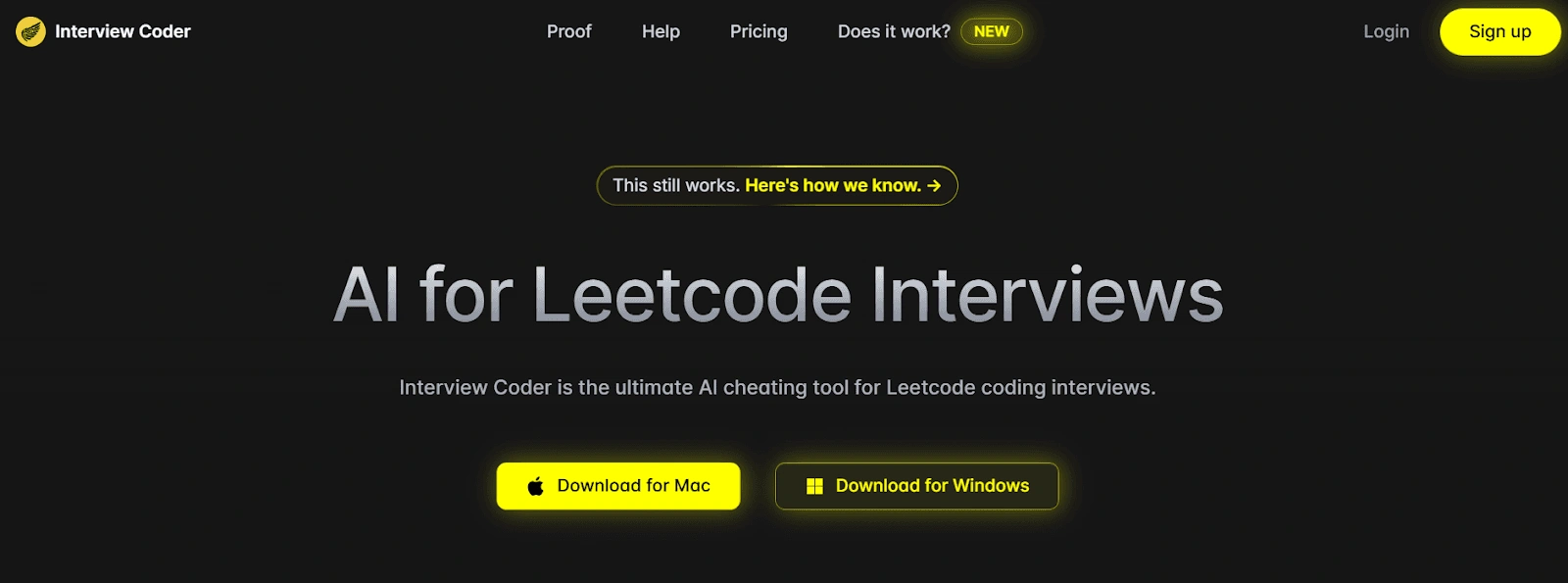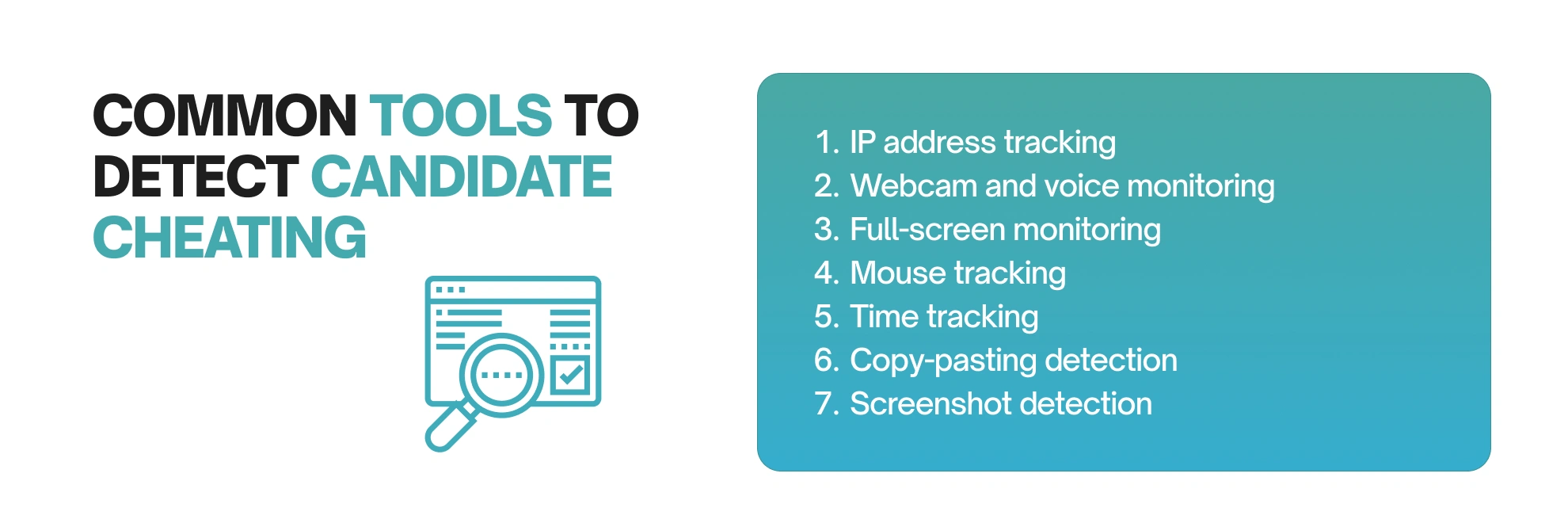
In the age of generative AI, candidates facing LeetCode-style challenges and live coding interviews have seen a surge of “invisible” cheating tools promising instant solutions—no study required. On the surface, these desktop apps, browser extensions, and cheeky AI copilots seem like a dream shortcut. Underneath, though, they’re get-rich-quick schemes that set you up for catastrophic failure. In this post, we’ll explore five prevalent AI cheating tools, reveal how major tech clients are fighting back, and show why the only real route to a sustainable tech career is consistent learning, genuine problem solving, and ethical preparation through SynergisticIT’s proven job placement programs. let’s discuss The Hidden Cost of AI Cheating Tools: Why Shortcuts in Coding Interviews Backfire
1. The Rise of AI Cheating Tools in Coding Interviews
AI’s prowess at code generation has spawned a parallel ecosystem: tools built not for productivity, but for deceit. From invisible desktop apps that transcribe your interviewer’s question to browser plugins that feed you complete solutions mid-session, these cheating tools have proliferated. A recent industry blog documented over ten such solutions marketed specifically for LeetCode and live interviews, warning that companies are in a technological arms race with candidates relying on AI to “beat the system”.

Despite slick marketing, these tools aren’t about mastering fundamentals—they’re about gaming time limits and proctor scrutiny. They trade off real skill acquisition for short-term “success,” often leaving candidates spectacularly unprepared once on the job.
2. Five AI Cheating Tools You Should Watch Out For
Let’s break down the categories and examples of AI cheating tools flooding the market:
- Desktop Copilots (Interview Solver)
Interview Solver is a standalone app that uses global hotkeys and an “invisible” screengrab mechanism to solve any LeetCode problem in real time. It claims to bypass screen-sharing detection by moving its solution window off-screen, then transcribing your interviewer’s voice to trigger AI responses instantly. - Invisible Interview Assistants (Interview Coder)
Built by a Columbia University student, Interview Coder listens to on-screen questions and voice prompts, returning ready-to-write code snippets without anyone on the call noticing. Its creator even demoed the tool by landing internship offers from Amazon and Meta—before Columbia launched disciplinary proceedings against him for academic misconduct. - Browser Extensions & Chrome Plugins
A growing list of Chrome extensions promises to overlay LeetCode or CoderPad with “AI hints.” They run in the background, detect problem statements, and inject solution code directly into the editor pane. Anti-cheating software often flags these, but developers continually tweak obfuscation techniques to avoid detection. - Second-Screen Companions
Some services route problem screenshots or screencasts to external devices—phones, tablets, even web dashboards—so you can glance at AI-generated hints on a second screen. They claim this avoids any suspicious alt-tabbing or screen distortion on the primary monitor.
- Low-Code Cheat Platforms (No-Code AI Builders)
No-code AI platforms like Anakin AI are repurposed to build custom interview bots. Candidates can configure workflows: screenshot LeetCode, send it to an AI endpoint, and auto-populate answers in seconds. These setups require technical know-how but promise near-total automation.
Each of these tools sells itself as the shortcut to your next offer. In reality, they’re cleverly disguised risk amplifiers.
3. Why AI Cheating Tools Are Nothing but Get-Rich-Quick Schemes
At first glance, cheating tools look like an easy win—but here’s why they collapse spectacularly:
- Short-Term Gains, Long-Term Pain
You might clear a screening round, but when asked to reproduce similar algorithms in-person or on a whiteboard, you’ll be exposed. Fake performance meets real expectations as soon as you join the team. - Eroded Problem-Solving Muscles
Real technical interviews test how you think under pressure—not just whether you can output code. By outsourcing thinking to AI, you undermine your own ability to deconstruct challenges, design efficient algorithms, and debug on the fly. - False Confidence
Passing an interview via AI cheat tools gives a hollow sense of achievement. When day-to-day tasks start piling up—bug fixes, code reviews, system design—you lack the foundations to cope, leading to early burnout or termination.
In short, these tools aren’t investments in your skills—they’re loans with sky-high interest rates that come due the moment you need to deliver on real projects.
4. Tech Clients Are Fighting Back—and Blacklisting Abusers
Major tech firms have noticed the cheating wave and are uniting against it:
- Onsite Verification Rounds
Companies now include unproctored on-site whiteboarding sessions and collaborative coding tasks to flush out those who relied on invisible AI aides.
- Behavioral and Live Debug Tests
Interviewers pepper in live debugging tasks and ask for algorithm optimizations on the spot, looking for genuine thought processes rather than rehearsed answers. - Blacklisting Repeat Offenders
Some clients have gone so far as to share blacklists of candidates caught using AI cheating tools. Once flagged, you may be barred from interviewing again—not at one firm, but across partner networks.
If you think a single coded session won’t follow you, think again. Your reputation in tech is the most portable credential you have. Lose it, and you lose access to doors you’ve barely begun knocking on.
5. The Only Sustainable Path: Mastery Through Practice
Rather than gamble your future on ephemeral shortcuts, invest your time in proven strategies:
- Deep Tech-Stack Fluency
Learn the languages, frameworks, and tools relevant to your target role—Java, Python, React, AWS, Docker—until you can discuss trade-offs and best practices fluently. - Problem-Solving Rituals
Adopt a systematic approach: clarify requirements, outline brute-force and optimized strategies, write pseudocode, and test incrementally. Repeat this cycle on 100+ LeetCode or HackerRank challenges. - Mock Interviews & Feedback Loops
Partner with peers or mentors for timed coding sessions. Record and review your performance to identify gaps in logic, time management, and communication. - Behavioral Readiness
Prepare for non-technical questions—“Tell me about yourself,” conflict resolution scenarios, and collaborative challenges—so you can articulate experiences with the STAR method confidently.
These steps aren’t glamorous, but they build muscle memory, adaptability, and the problem-solving mindset top firms demand.
6. Why Gaining a Job Only to Lose It Is Worse Than Never Getting One
Landing an offer through cheating only to flounder on the job can have devastating consequences:
- Professional Stigma
A record of termination for underperformance is harder to recover from than a gap in your resume. Recruiters may see you as a flight risk. - Financial and Emotional Toll
The cost of starting over—job searches, interviews, relocating—drains both savings and confidence.
- Legal and Contractual Repercussions
Some employers include clauses protecting them against misrepresentation. Misconduct can lead to legal exposure or forfeited signing bonuses.
By contrast, a healthy timeline—learning, interviewing, upskilling—may take longer, but it secures your credibility and opens doors for career-long growth.
7. SynergisticIT’s Ethical Path to Tech Success
At SynergisticIT, we believe real mastery beats shortcuts every time. Established in 2010, we combine hands-on tech training with one-on-one career support to place candidates in roles where they can truly excel.
- Comprehensive, Up-to-Date Curriculum
Whether you’re targeting full-stack development, cloud engineering, or data science, our syllabi adapt to market trends—teaching you the skills employers actually need. - Real-World Projects
Build production-grade applications and data pipelines alongside seasoned IT practitioners, turning abstract concepts into deliverables you can showcase. - Mock Interviews & Question Bank
Practice with thousands of real questions sourced from Fortune 500 clients. Hone both technical coding rounds and behavioral stages until you perform consistently under pressure. - Ethical Career Support
No tricks. We market your newly acquired skills to our network of 24,000+ hiring managers, guiding you through offers, negotiations, and onboarding—until you land a role that aligns with your strengths.
8. SynergisticIT Job Placement Programs: Tracks and Resources
8.1 Core Job Placement Program
Our flagship program offers:
- 5–7 hours/day of live instructor-led sessions over 5–7 months
- Small cohorts for personalized mentorship
- Enterprise-level capstone projects
- Interview readiness training and resume optimization
- Active résumé marketing to 24,000+ companies
- 12 months of post-placement support
- Average placement salaries of $90K–$150K
Enroll here: SynergisticIT Job Placement Program
8.2 Java & Full-Stack Development Track
Designed for software developers who want mastery in:
- Core & Advanced Java (OOP, multithreading, collections)
- Spring Boot, Hibernate, Microservices
- React, Node.js, MongoDB
- AWS Solutions Architect preparation
- Real-world APIs and cloud-ready deployments
More details: Java & Full-Stack Job Placement Program
8.3 Data Science & AI Track
For aspiring data scientists and ML engineers:
- Python, Pandas, NumPy, Scikit-learn
- Data modeling, feature engineering, and visualization
- AWS data services and deploying ML pipelines
- Capstones in predictive analytics and deep learning
Learn more: Data Science & AI Track
9. SynergisticIT in the Press and Community
- USA Today Feature:
“How SynergisticIT Is Changing How Tech Companies Source Talent” explores our innovative upskilling and sourcing approach, highlighting our impact on reducing skill mismatches and ramp-up times. - Interview Question Repositories:
Access 5,000+ vetted questions across coding, system design, and behavioral interviews to sharpen your performance. - Event Videos & Motivational Content:
Get inspired and learn best practices from our YouTube channel, home to tech talks, mock interviews, and career guidance shorts. - Blogs for Jobseekers:
Our regularly updated blog covers everything from elevator pitch mastery to system design deep dives, helping you communicate your value at every stage.
10. Conclusion: Build Skills, Not Shortcuts
AI will continue to transform software development—and with it, the ways candidates attempt to game the system. But no tool can replicate the confidence that comes from truly understanding a tech stack, solving complex problems under time constraints, and communicating your process effectively.
Taking the long path—structured upskilling, deliberate practice, and ethical preparation—ensures you not only ace interviews but also thrive on the job. Ready to invest in your future rather than rent it with risky cheats? Explore SynergisticIT’s programs and start building a tech career that lasts.
- Visit our core program: SynergisticIT Job Placement Program
- Dive into Java & data science tracks: Java & Full-Stack Job Placement
- Read our USA Today feature: SynergisticIT in USA Today
- Practice with real questions: Interview Questions Database
- Watch our event videos: SynergisticIT YouTube
- Level up your pitch: Elevator Pitch Blog
Ditch the shortcuts, embrace mastery, and let SynergisticIT guide you to the career you deserve.







